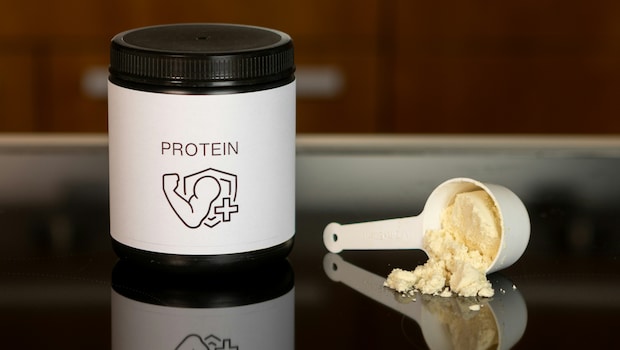Protein is one of the most celebrated nutrients today-and deservedly so. It plays a vital role in nearly every aspect of our health. Every cell in the body is made up of protein. It's the building block of muscles, skin, enzymes, and hormones. In addition, it supports our immune system, aids wound healing, and assists in the daily repair of tissues. Protein also provides satiety, helping us feel full for longer and manage weight more effectively.
But while protein is undeniably essential, the current trend of "more is better"- with protein-fortified juices, high-protein milk, bars, and yoghurt- raises an important question: Are we overdoing it? Do we really need all this extra protein?
Also Read: Can Supplements Really Help You Get Fit? Rujuta Diwekar Shares Her Expert Opinion

Protein is an essential part of our diet
To answer that, we need to understand the Recommended Dietary Allowance (RDA). The RDA is the average daily intake level sufficient to meet the nutrient requirements of nearly all (97-98%) healthy individuals in a specific age and gender group. In India, the Indian Council of Medical Research (ICMR) recommends 0.6 to 0.8 g of protein per kilogram of body weight per day for healthy adults. This assumes normal activity levels and a balanced diet.
Most people can easily meet these needs through a traditional Indian diet that includes:
- 2-3 servings of pulses/legumes daily
- 1-2 servings of dairy (milk, curd, paneer)
- Whole grains (such as dalia, roti, brown rice)
- Nuts and seeds
- Eggs, fish, or poultry (for non-vegetarians)

Protein intake needs can be easily met through chicken breast and other lean meats
The Problem with Protein Overkill
Today, the food industry markets protein as a superfood, adding it to juices, biscuits, snacks, and even bottled water. But here's what we must consider: Excess protein doesn't get stored as muscle. Instead, it's converted into glucose or fat or eliminated.
Also Read: Dal Vs Rajma: Which Indian Staple Packs A Bigger Protein Punch?
Consuming too much protein-especially from supplements or animal sources-may:
- Stress the kidneys (particularly in people with early kidney disease)
- Cause dehydration
- Displace other vital nutrients such as fibre and vitamins
- Lead to unnecessary calorie intake and weight gain
A 2020 study in the Journal of Nutrition noted that excessive protein from supplements offers no added benefit in sedentary individuals and may even cause metabolic stress.

Consuming too much protein may also lead to weight gain.
Photo: Unspalsh
When Higher Protein Intake is Needed
There are life stages and situations where increased protein is beneficial, such as:
- Pregnancy or lactation
- Athletes or individuals engaging in heavy exercise
- Older adults (to prevent muscle loss or sarcopenia)
- During illness, recovery, or surgery
Even in these cases, natural food sources-such as dal, milk, eggs, nuts, and lean meats-are usually sufficient and safer than relying heavily on fortified or artificial protein products.
Also Read: Ate Too Much This Weekend? How To Reset Your Body Without A Crash Diet

Protein powders are artificial sources of protein that may help but natural food sources are much safer
Photo: Unsplash
Yes, protein is essential, and many Indian diets can benefit from a small boost-especially at breakfast, where carbohydrates often dominate. But that doesn't mean everyone needs protein water or powder in their chai. Use the RDA as your guideline and increase intake only if your lifestyle demands it. Above all, choose natural sources of protein rather than falling for marketing gimmicks.
Remember: Food is meant to nourish, not overwhelm, your body.
About Rupali DattaRupali Datta is a Clinical Nutritionist and has worked in leading corporate hospitals. She has created and lead teams of professionals to deliver clinical solutions for patients across all medical specialties including critical care. She is a member of the Indian Dietetic Association and Indian Association of Parenteral and Enteral Nutrition.










